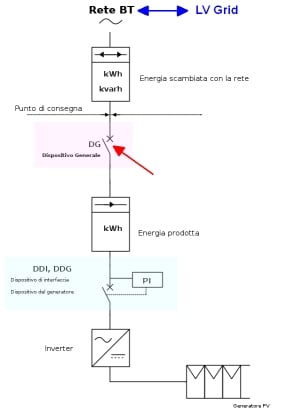Sempronio1960bis
Electrical
Good evening, a silly question, I don't know the sector.
What happens to the inverters in the event of a sudden disconnection from the grid of a photovoltaic system, for example due to an intervention of a RCD, or fuse, or circuit breaker between the inverter and the grid?

What happens to the inverters in the event of a sudden disconnection from the grid of a photovoltaic system, for example due to an intervention of a RCD, or fuse, or circuit breaker between the inverter and the grid?

